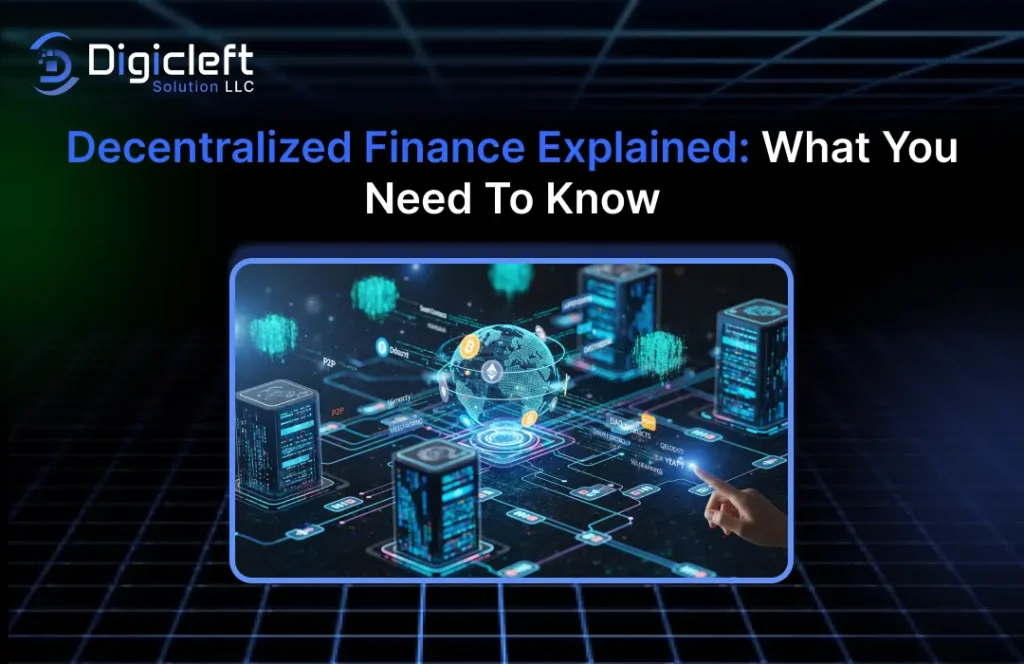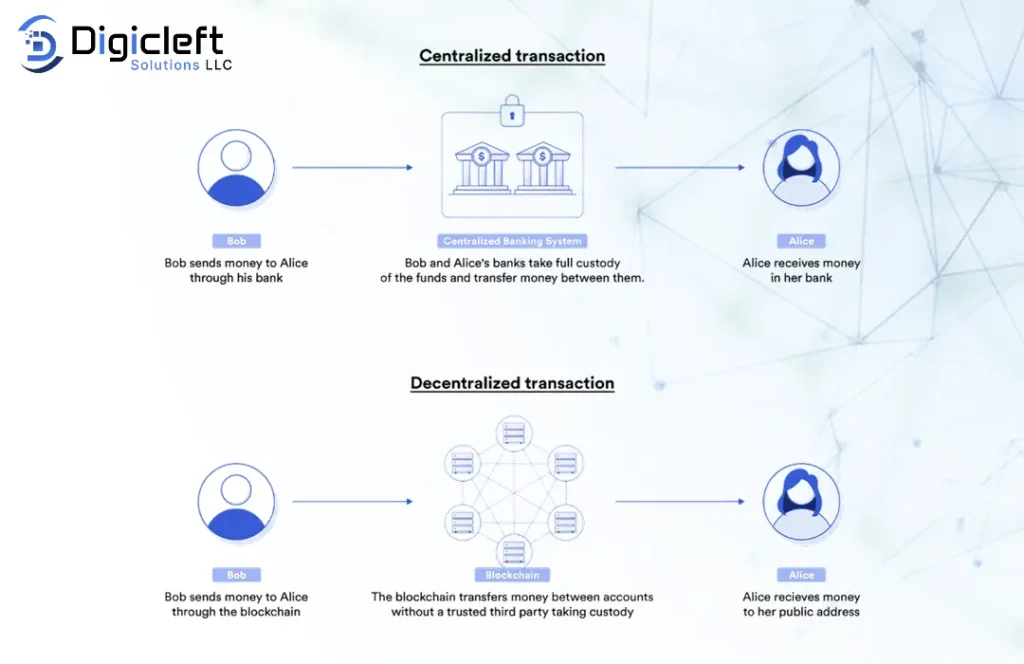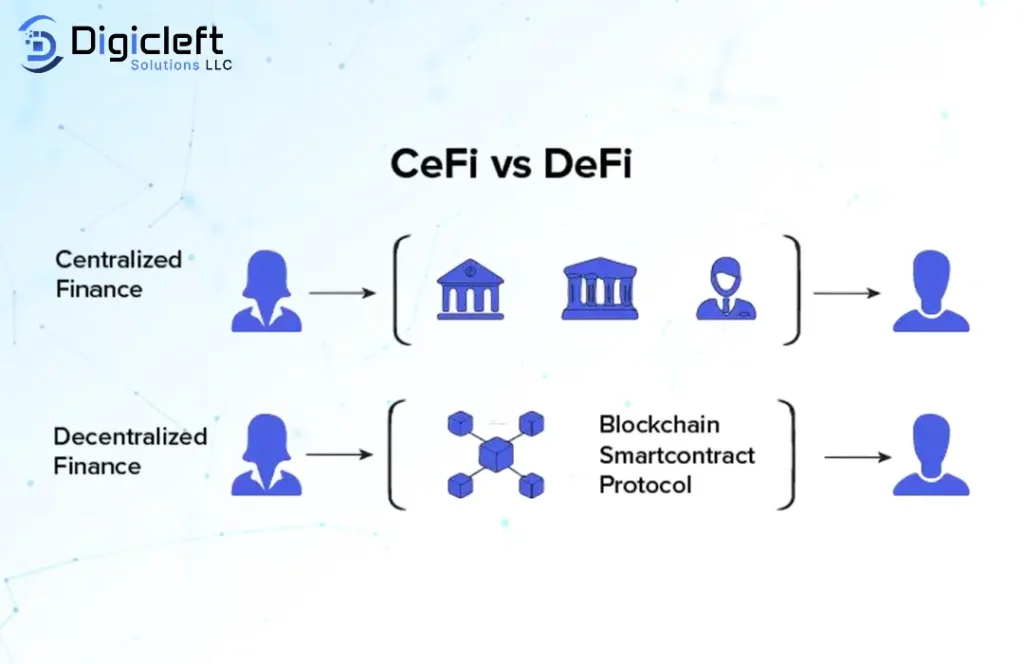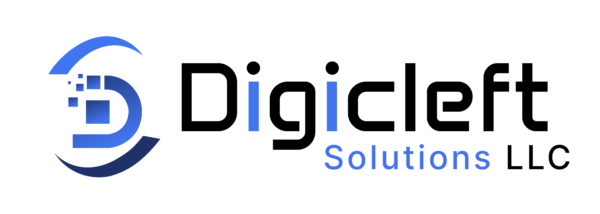
Imagine a world where you can borrow, trade, or earn interest without relying on a bank. That’s Decentralized Finance (DeFi).
How DeFi Differs from Traditional Finance
Traditional finance is centralized and controlled by institutions. DeFi flips this model, enabling peer-to-peer, transparent transactions.
Centralized vs Decentralized Systems

- Centralized Finance (CeFi): Intermediaries, limited access, slower processes.
- Decentralized Finance (DeFi): No middlemen, global access, automated smart contracts.
Key Components of DeFi
Smart Contracts
Self-executing agreements with rules embedded in code.
dApps (Decentralized Applications)
Blockchain-based platforms like Aave (lending) or Uniswap (DEX).
Blockchain Platforms
Ethereum dominates, but Solana, Avalanche, and BSC are growing.
Popular DeFi Use Cases
- Lending & Borrowing: Loans via crypto collateral.
- Decentralized Exchanges: Trade without intermediaries (e.g., Uniswap).
- Stablecoins: Pegged to assets like USD.
- Yield Farming & Staking: Earn passive income with higher returns.
Advantages of DeFi
- Accessibility – anyone with a smartphone can join.
- Transparency – all transactions on blockchain.
- High potential returns.
Risks and Challenges
- Smart contract bugs and hacks.
- Market volatility.
- Regulatory uncertainty.
How to Get Started
- Set up a wallet (e.g., MetaMask, Trust Wallet).
- Research DeFi platforms (look for audits & transparency).
- Manage risks (diversify, invest responsibly).
Understanding DeFi Tokens
- Governance Tokens: Vote on protocol changes (e.g., COMP).
- Utility Tokens: Access features/pay fees (e.g., UNI).
- Tokenomics: Study supply, demand, distribution.
The Role of Oracles
Oracles bring real-world data (e.g., price feeds) to blockchain, ensuring smart contracts work properly.
DeFi vs CeFi

| Feature | DeFi | CeFi |
|---|---|---|
| Control | User-controlled | Institution-controlled |
| Transparency | High, on-chain | Limited, opaque |
| Accessibility | Global | Restricted |
| Fees | Variable, often lower | Fixed, sometimes high |
The Future of DeFi
- Cross-chain interoperability.
- Mass adoption with user-friendly solutions like Digicleft.
- Hybrid models integrating with banks and fintech.
Security Best Practices
- Use only audited contracts.
- Enable 2FA.
- Keep private keys secure.
- Avoid unrealistic promises.
FAQs
1. Is DeFi safe? Yes, if using audited platforms and managing risks.
2. Do I need a lot of crypto to start? No, you can start small.
3. What’s a DeFi wallet? A secure wallet to store crypto and interact with dApps.
4. Can I lose money? Yes, due to volatility, hacks, or failures. Invest wisely.
5. How does Digicleft help? It simplifies DeFi with security, smooth transactions, and user-friendly experience.


